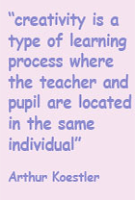Very often I see newspaper articles of a study and having some experience with this, I often go look for the original source. Sometimes, however, I can't find it. It might be with a journal that thinks it should charge me money for its work.
I wonder if this is due to my ignorance of other fields, in astronomy for example you can't find all articles for free by going to the journal website. But 99.9% of the work people do gets posted on http://arxiv.org/ for free download. As they get posted there before making it to journals that's what often gets referenced on blogs and such.
In my opinion charging money to read academic work is a form of privilege and thus imperialism. Can researchers in (likely poorer) African schools afford, for example this article http://www.jstor.org/stable/2138750 written on property rights in Ghana by a white professor at the London School of Economics.
There is something logically wrong with journals charging moneys. Ideas are useless if no one can access them.









